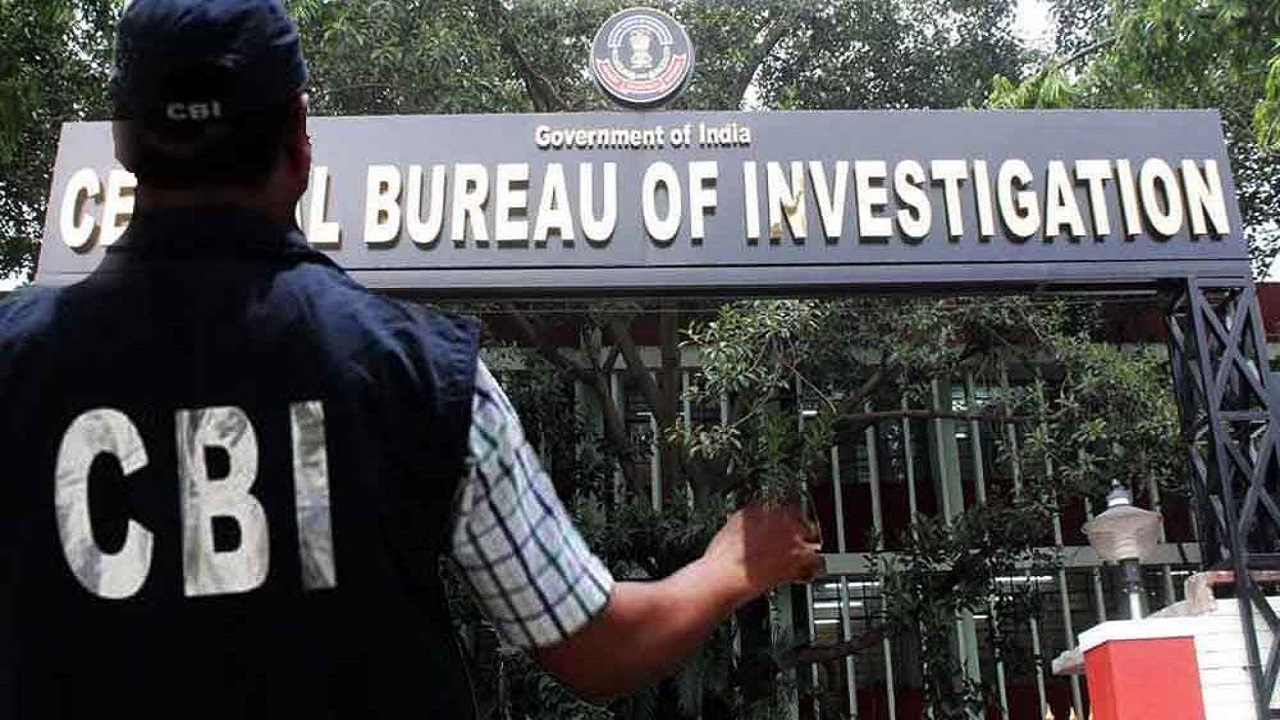In a recent anti-corruption sting operation, the Central Bureau of Investigation (CBI) arrested two officials from the Cantonment Board in Ayodhya, Uttar Pradesh, for allegedly accepting a ₹10,000 bribe. The officials—a Junior Engineer on a contract basis and another official—were apprehended on accusations of demanding money in exchange for issuing an essential allotment letter. This document was required for the complainant to legally access a consignment of auctioned wood, valued at ₹1.37 lakh, from the Cantonment Board.
This case serves as a stark reminder of the corruption embedded in government offices and reflects the role of anti-corruption agencies like the CBI in rooting out unethical practices.

The Bribery Case: Allotment Letter at the Center of Corruption
According to the CBI, the arrested officials allegedly demanded a bribe of ₹10,000 from the complainant, who had legally secured a wood consignment through an auction held by the Cantonment Board. The allotment letter, a necessary document for lifting the wood, became the center of the bribery demand. The complainant’s prompt action in reporting this demand allowed the CBI to plan and execute a successful sting operation, catching the officials red-handed as they accepted the bribe.
The arrested officials were taken into custody, underscoring the zero-tolerance approach that the CBI has adopted in cases of corruption. For the Cantonment Board, responsible for managing civic and administrative functions, this case points to vulnerabilities within local governance structures that can be exploited by officials for personal gain.

The Role of CBI in Tackling Corruption in India
The Central Bureau of Investigation, India’s leading investigative agency, is tasked with addressing high-profile criminal cases and instances of corruption that have significant implications for the country. In this case, the CBI’s involvement highlights the agency’s dedication to cleaning up government operations and ensuring public trust in governance.
The CBI frequently undertakes cases of corruption within government offices and institutions, where officials may misuse their power to seek personal gains. Its proactive approach in conducting sting operations and responding to complaints emphasizes the importance of accountability and integrity in public service. The agency’s actions serve as a deterrent for public officials who might otherwise misuse their positions, reminding them of the consequences of engaging in corrupt activities.
Understanding the Scale and Impact of Corruption in Local Governance
Corruption at the local level, especially within smaller government bodies like cantonment boards, is not uncommon in India. These boards, responsible for various administrative duties and public service functions, often serve as the initial point of contact between the public and government processes. In such setups, even minor administrative tasks, like issuing permissions or allotment letters, can become opportunities for corruption.
For citizens, this corruption results in delays, additional expenses, and overall frustration when dealing with local government offices. Furthermore, it erodes public trust in government institutions, as citizens feel compelled to pay bribes to access services they are legally entitled to receive. The impact of such actions extends beyond the immediate transaction, affecting the perception of governance as a whole.
How Public Complaints Drive Anti-Corruption Actions
Public awareness and willingness to report corruption play a vital role in combating it. In this case, the complainant’s swift reporting of the bribe demand enabled the CBI to take action. Such transparency is crucial in preventing corruption, as it allows agencies like the CBI to intervene and hold officials accountable. Encouraging more people to report instances of bribery and corruption can create a system of checks and balances within government offices.
The CBI’s success in this operation serves as a reminder that citizens have a crucial role in fighting corruption. By reporting incidents, they contribute to a culture of accountability and transparency, ensuring that public officials operate within the bounds of the law.
Challenges in Eradicating Corruption from Government Offices
Despite the CBI’s efforts, the persistence of corruption in government offices points to systemic challenges. Issues such as bureaucratic opacity, lack of sufficient oversight, and limited awareness of reporting mechanisms contribute to the prevalence of bribery and unethical practices. In regions where local governance structures are weaker, officials may feel emboldened to misuse their power, knowing that oversight is minimal.
To tackle these challenges, comprehensive reforms are needed, including more transparent procedures, stricter oversight mechanisms, and better education on anti-corruption measures for both public officials and citizens. Additionally, fostering a strong ethical culture within government offices can reduce the likelihood of such practices.
The Bigger Picture: Strengthening Anti-Corruption Measures
Cases like the Ayodhya Cantonment Board bribery incident emphasize the need for ongoing improvements in India’s anti-corruption framework. While the CBI’s efforts are commendable, more systematic changes are necessary to prevent corruption at its roots. Strengthening laws, implementing regular audits of government departments, and ensuring accountability at every level of governance are key steps in this direction.
Moreover, empowering institutions to operate independently and without political influence is crucial to maintaining the credibility of anti-corruption efforts. By creating an environment where officials fear repercussions for unethical behavior, the government can ensure more honest governance.
Towards a Corruption-Free Government
The CBI’s arrest of two Cantonment Board officials in Ayodhya highlights both the challenges and progress in India’s fight against corruption. While cases of bribery in local governance reflect a longstanding issue, the actions taken by anti-corruption agencies show a commitment to accountability and transparency.
For India, eliminating corruption remains a complex but achievable goal. Through a combination of vigilant law enforcement, public cooperation, and systemic reforms, the country can work towards a future where government officials are held to the highest standards of integrity. As citizens, it is essential to report instances of corruption and support agencies like the CBI in their mission to foster a transparent and just governance system.

